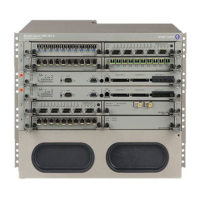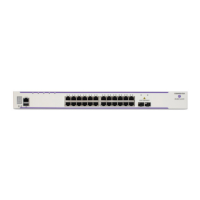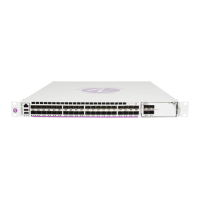Interface Configuration
7750 SR Interface Configuration Guide Page 447
The magic number option is sent to the remote peer during protocol negotiation. If this option is rejected by
the remote peer, the router will bring the link up but will be unable to detect loopbacks since the router will
always send a magic number of 0 in the echo messages. If this option is accepted by the remote peer, the
router will send echo messages with randomly generated magic-numbers. If the SR receives a config-req
with the same magic number that was sent out, the router will calculate a new magic number to use and send
out another config-request. If the router is persistently seeing the randomly generated magic number in the
received config-req, the router will declare a loopback.
The no form of the command disables the loopback detection.
Default no magic-number
multiclass
Syntax multiclass count
no multiclass
Context config>port>ml-bundle>multiclass
Description This command enables multi-class MLPPP as defined by RFC 2686, The Multi-Class Extension to Multi-
Link PPP, on a MLPPP bundle (including MLPPP bundle protection groups) with 2, 3 or 4 classes. For mul-
ticlass MLPPP bundles with a non-zero count, the class index takes valid values from 0 to one less than the
maximum number of classes inclusive. For example a 4-class MLPPP bundle has 4 classes with indices 0, 1,
2, and 3. A bundle must be shutdown with no links for this value to be changed.
Entries are created and deleted by the system depending on the number of classes being used by a given
MLPPP bundle.
The no form of the command disables multi-class MLPPP.
Default 4
Parameters count — Specifies the number of classes in a MLPPP bundle.
Values 2 — 4
